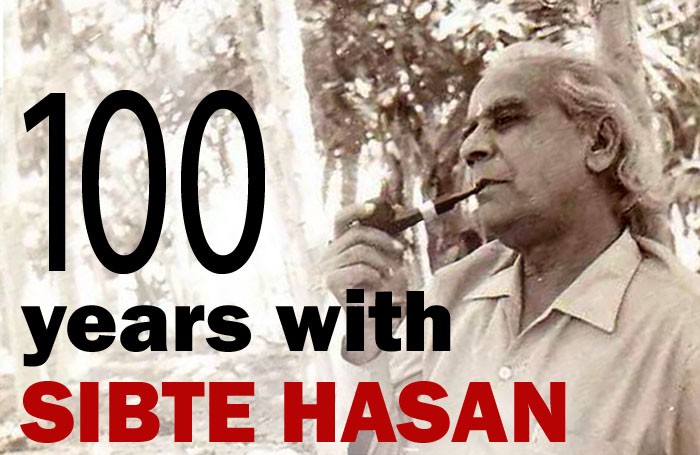
Celebrating Sibte Hasan and everything he stood for in his centenary year

This is the centenary year of Pakistan’s foremost progressive intellectual Sibte Hasan. It is perhaps time to not just celebrate the man and everything he stood for but to also revisit his thoughts with renewed attention. Because the country in particular and the world at large is in the grip of retrogressive forces that Sibte Hasan had warned us against.
He was one of the pioneers of Progressive Writers’ Association which had among its cadres many creative writers. But, as Dr Syed Jaffar Ahmed points out, there weren’t many social scientists associated with the movement. Sibte Hasan filled that gap and produced a corpus of serious social and political writings that drew a lot from history. In each of his writings, he used the Marxist tools of analysis. In doing so, he followed the intellectual tradition of Allama Niaz Fatehpuri and Ali Abbas Jalapuri.
He worked as a journalist and political activist (he was actually sent to Pakistan to set the foundations of the Communist Party of Pakistan), and raised the bar of excellence in everything he did. He made a conscious decision of writing in Urdu and, in a non-reading culture, his books were widely read and ran into many editions.
Read also: 100 years with Sibte Hasan
In his last published work, The Battle of Ideas, a little after he passed away, he categorically states that he cannot cover "the entire range of social, political, economic and cultural conflicts or their ideological representations" and therefore would confine himself to "the clashes between secularism and theocracy and between enlightenment and obscurantism".
Despite believing in the fact that the future of humanity lies in scientific socialism, he said that "our immediate task is to build a secular, democratic state, free from imperialist ties, and to abolish the outmoded feudal structures that sustain the civil and military administration of the colonial era…"
He was a firm believer in the rights of smaller nationalities in this country. Together these all make for a viable new narrative this country needs at the moment in order to survive as a progressive and democratic Pakistan.